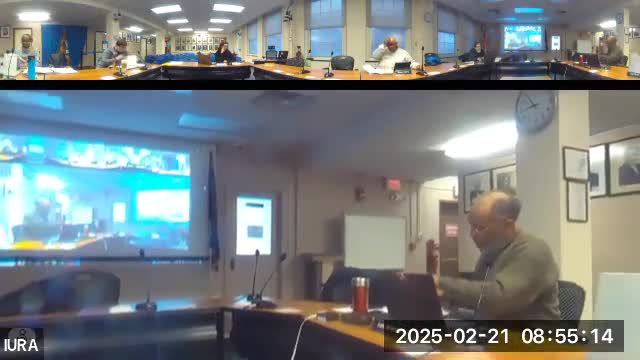Committee reviews public‑service and facilities applications; votes to shift Southside Community Center resilience project to public‑facilities review
Get AI-powered insights, summaries, and transcripts
Subscribe
Summary
The committee reviewed multiple CDBG public‑service funding applications and recommended moving Southside Community Center’s resilience hub request into the public‑facilities category to allow access to larger funding pools; members also discussed scale, secured match, and eligibility for several other applicants.
The Getragette Urban Renewal Agencies neighborhood investments committee spent most of its meeting reviewing public‑service and related public‑facilities applications for the upcoming CDBG program year. After discussion, the committee agreed to recommend that the Southside Community Center’s resilience hub application be moved from the public‑service to the public‑facilities category so it can access the broader CDBG public‑facilities pool (which has no per‑project cap).
Why it matters: Moving the Southside project into public facilities would allow the applicant to compete for larger grants to cover building improvements and infrastructure (solar, electrical upgrades and structural work) that the committee identified as mostly facilities‑eligible rather than strictly public‑service items like emergency kits.
Southside Community Center resilience hub: Committee members described the project as a multi‑phase public‑safety/resilience proposal that aims to make a downtown facility usable as a shelter or hub after extreme weather or other emergencies. Members raised questions about scope, flood‑plain siting, whether the basement is functional, and which budget lines represent secured versus proposed funding. Staff reported a mix of secured amounts (letters or commitments cited for $250,000 from a state office and $200,000 from the city in the application attachments) and pending grants; the committee requested clearer budget spreadsheets and commitment letters showing which funders are underwriting specific components if the application moves to public facilities.
Other applicants summarized: committee members reviewed a range of public‑service requests and generally favored smaller, scalable awards in this year’s constrained budget. Highlights from the discussion: - Finger Lakes Reuse: Continued materials‑access program to subsidize household supplies and vouchers; committee sought clarity on voucher expiration, what items are eligible, and the delivery component. The application requested funds primarily for household materials with a small staffing share. - Human Services Coalition (2‑1‑1): Members acknowledged 2‑1‑1’s referral and housing‑navigation roles and questioned whether portions of the application represented ongoing operating costs rather than discrete new projects; committee asked for clarification on travel/mileage line items and scalability. - Catholic Charities: Two requests were discussed (place‑to‑stay supportive housing staffing and a security deposit assistance component). Members supported case‑management funding but asked for confirmation of program sites and lease status and how security‑deposit work coordinates with voucher acceptance and landlord inspection requirements. - Learning Web: Committee noted that a housing scholarship request proposes a relatively high per‑participant cost (five participants in the program) and asked for justification of staff expenses relative to outcomes. - Immigrant Services (Catholic Charities program): Members supported the program but asked whether federal policy changes could affect service levels and requested information on employer commitments for placement assistance. - SORT Ithaca: Job‑readiness and green‑jobs starter‑kit funding; committee asked whether parts of the project might qualify under economic‑development funds and whether the kit components are eligible. - Bike Works: Funding requested for community bike access, a pop‑up outreach trailer and a point‑of‑sale tracking system; a committee member recused (Darren left the table) because of a board affiliation; members asked for clarifying documentation of secured local grants and details about service populations (who uses bikes as primary transit) and outreach plans. - Service InUnity (recovery‑to‑work): Members requested detail on whether payments to program participants are direct wages, stipends, or contractual placements and asked for clarity on fiscal sponsorship/organizational status and the current share of secured funding. - West Haven Farm: A subsidy for weekly produce boxes for low‑income households; members asked whether the project is operating as a CSA subscription model, what portion of request represents operating costs versus distribution to low‑income households, and for clarification about other funding partners and whether the applicant is a for‑profit farm or nonprofit operation. - Beyond the Box / Ultimate Reentry Opportunity: A reentry employment navigation and employer‑engagement program; members asked clarifying questions about which project components are direct services to low‑ and moderate‑income (LMI) residents (eligible for CDBG public‑service funds) and which are employer training or research (less clearly eligible).
Process notes: For several programs the committee asked for standardized Excel budgets, commitment letters for secured match, clarification on whether proposals are scalable, and confirmation of eligibility lines (public service vs public facilities vs economic development). Staff will send follow‑up questions and request additional documentation where needed.
Ending: The committee will reconvene to start allocating limited funds; the Southside move to public‑facilities review was the clearest procedural outcome from the discussion.
